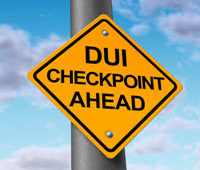Delaware AG Implements Checkpoint StrikeForce to Nab Drunk Drivers

In connection with Delaware’s Checkpoint StrikeForce (CPSF) initiative, the state’s Attorney General recently swore in 53 law enforcement officers to serve New Castle, Kent, and Sussex Counties. According to a June 24, 2019 article published by Delaware.gov, CPSF will encompass five DUI sobriety checkpoints throughout the state at multiple times during the year. These roadside stops will be in addition to those implemented by county and municipal law enforcement. The goal is to reduce the number of fatal and injury-causing drunk driving accidents that result from intoxicated motorists. So far, in 2019, officials report that they have already made more than 1,860 DUI arrests state-wide.
Being arrested for drunk driving pursuant to a roadside checkpoint is very different in some ways as compared to getting stopped by police on suspicion of violating DUI laws. A DUI roadblock and sobriety checkpoint lawyer can describe in more detail, but it is important for motorists to be aware of a few details.
What to Expect at a Sobriety Checkpoint: Many DUI arrests occur because a motorist broke a traffic law, such as running a red light or speeding. In other cases, officers pull someone over for unusual maneuvers that seem to indicate impairment. With sobriety checkpoints, every driver is stopped by police. You will typically be asked to answer some basic questions about your destination and where you were before being stopped. Officers will request to see your driver’s license, vehicle registration, and insurance information.
If police observe suspicious factors, they may have grounds to conduct a more thorough investigation. Examples include:
- Slurred speech;
- The smell of alcohol;
- Bloodshot eyes; or,
- Other questionable behaviors.
Officers may proceed to request you to perform field sobriety tests, submit to a portable breathalyzer test, or take you in for a formal chemical test of your blood alcohol concentration (BAC).
Legality of Roadblocks and Sobriety Checkpoints: Though they may seem intrusive, roadside stops such as those conducted by CPSF officers are entirely legal and constitutional. The US Supreme Court has held that the public interest against the dangers of drunk driving justifies the potential invasion of privacy.
Penalties for Violating Delaware DUI Laws: Regardless of whether you were arrested for drunk driving pursuant to a sobriety checkpoint or other reasons, the punishment for a conviction is the same.
- For a first offense, you face a jail term up to 12 months and a maximum fine of $1,500; and,
- A second DUI within 10 years could lead to incarceration ranging from 60 days to 18 months, plus a maximum fine of $2,500.
There are also administrative penalties that affect your driving privileges. The length of the license suspension depends upon your blood alcohol level, as well as whether it is a first or subsequent offense.
Set Up a Consultation with a Skilled Drunk Driving Defense Lawyer
To learn more about your rights and defense strategies in a Delaware DUI case, please contact Wilmington DUI stop attorney Michael W. Modica today. You can schedule a consultation by calling our office at 302.600.1262 or going online. We answer your questions and discuss your options after reviewing your specific circumstances.
Resource:
news.delaware.gov/2019/06/24/checkpoint-strikeforce-swearing-in-ceremony/
https://www.michaelmodicalaw.com/three-forms-of-evidence-in-a-delaware-dui-case/
